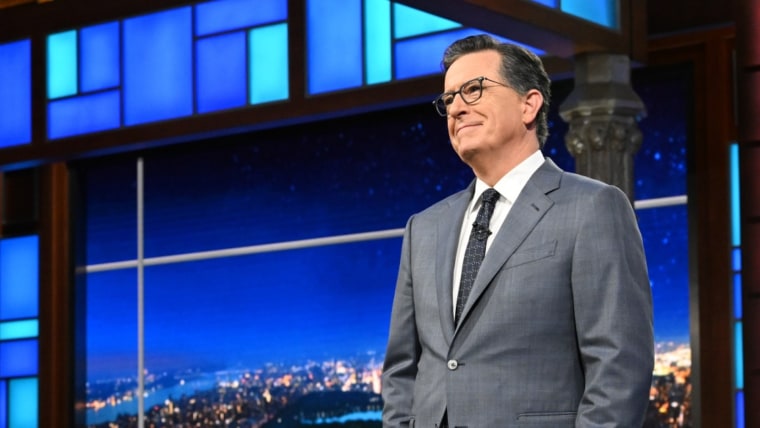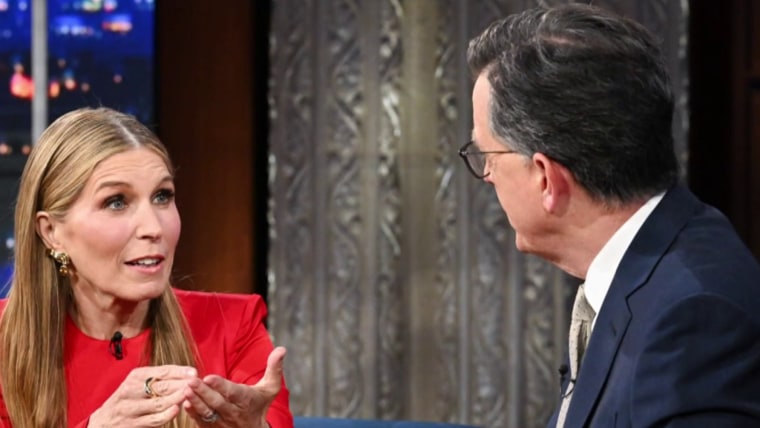On Thursday, Stephen Colbert announced that CBS has canceled “The Late Show with Stephen Colbert.” The Hollywood Reporter aptly described the decision to sunset the popular program in May 2026 as a “shocker.”
CBS, for its part, says that the decision to terminate the entire “Late Show” franchise — inaugurated 33 years ago by the iconic David Letterman — was “purely a financial decision against a challenging backdrop in late night.” And indeed, though Colbert’s “Late Show” is the highest-rated late-night show, such shows are struggling to maintain revenue and market share. We live in a social media age in which people, especially “The Youth,” consume comedy (and reality) differently. The format perfected and popularized by old heads like Johnny Carson and Letterman just doesn’t attract mass audiences who buy stuff anymore.
But although CBS insists the cancellation “is not related in any way to the show’s performance, content or other matters,” many viewers (and even some lawmakers) have a different theory of the case.
Many are wondering if the sudden dismissal of Colbert isn’t just about the bottom line.
On Monday, a mustachioed Colbert roasted CBS’ parent company Paramount over its $16 million settlement with the Trump administration about the way the program “60 Minutes” edited an interview with then-Vice President Kamala Harris. The host described this capitulation to what he termed a “nuisance lawsuit” as “a big fat bribe.” Why a “bribe?” Because Paramount is seeking FCC approval for its megamerger with the movie studio Skydance. That would be the same FCC beholden to the whims of one Donald J. Trump.
Colbert made that joke on Monday. On Wednesday, Colbert’s bosses informed him that the show was canceled. On Thursday he broke the news.
Understandably, then, many are wondering if the sudden dismissal of Colbert isn’t just about the bottom line. Now factor in that Colbert has been roasting Trump for a long time. In fact, it could be argued that Colbert was quicker than most comedians to recognize the unique threats to liberal democracy presented by Trump and the MAGA movement. It could also be argued that Trump and the MAGA movement recognized the unique threats to their legitimacy and cultural hegemony presented by comedic critics who broadcast to massive audiences.

It didn’t help CBS’ case when Trump “truthed” the following statement Friday: “I absolutely love that Colbert’ got fired. His talent was even less than his ratings. I hear Jimmy Kimmel is next. Has even less talent than Colbert! Greg Gutfeld is better than all of them combined, including the Moron on NBC who ruined the once great Tonight Show.”
While I think there is some merit to the network citing the bottom line, it’s difficult to look at Colbert’s sudden termination and think politics played no role. Besides, there is ample precedent for massive corporations compromising their commitment to comedic free speech in order to preserve and expand their markets. In 2018, on his Netflix show “Patriot Act,” Hasan Minhaj, excoriated Saudi Arabia and its crown prince for their role in the killing of journalist Jamal Khashoggi. After the Saudi government told Netflix the episode violated the kingdom’s anti-cybercrime law, the company removed that specific episode in Saudi Arabia.
Would-be authoritarians have a clear playbook for dealing with those who mock them.
Netflix’s ordeal reveals “a symbiotic relationship of mutual accommodation,” wrote professors Joe Khalil and Mohamed Zayani. “The global streaming company,” the communications scholars continue, “gains access to subscribers/audiences in exchange for loosening expectations about upholding unfettered speech and supporting artistic freedom.”
All of which is to say that would-be authoritarians have a clear playbook for dealing with those who mock them: 1) find a popular comedian with broad reach who lambastes you with especial venom and intelligence, 2) realize that most comedians are insanely brave (and, from the point of view of their physical safety, quite stupid) and can’t be cowed into censoring themselves, 3) sue their bosses and/or threaten them with loss of markets, licenses, broadcast rights, etc., 4) remove the critical political comedian from the platform, potentially replacing them with entertainers who are friendlier to the regime.
The “Late Show” cancellation augurs ominously for the future of political comedy carried by mass media. Then again, comedy can exist outside of platforms provided by corporate conglomerates. Comedians can ply their wares at small clubs and make whatever jokes they see fit. Freedom of speech lives! Right?
I hope so. But I must remind you that back in the 1960s, law enforcement monitored and raided the great Lenny Bruce’s shows across the country. The end of the “Late Show” threatens to push or shunt critical political comedy off the airwaves and back into the local clubs. Maybe jokes and expressive liberty will thrive there, unmolested by thin-skinned rulers. Or maybe we are about to see an assault on comedic free speech that we haven’t seen in more than half a century.

